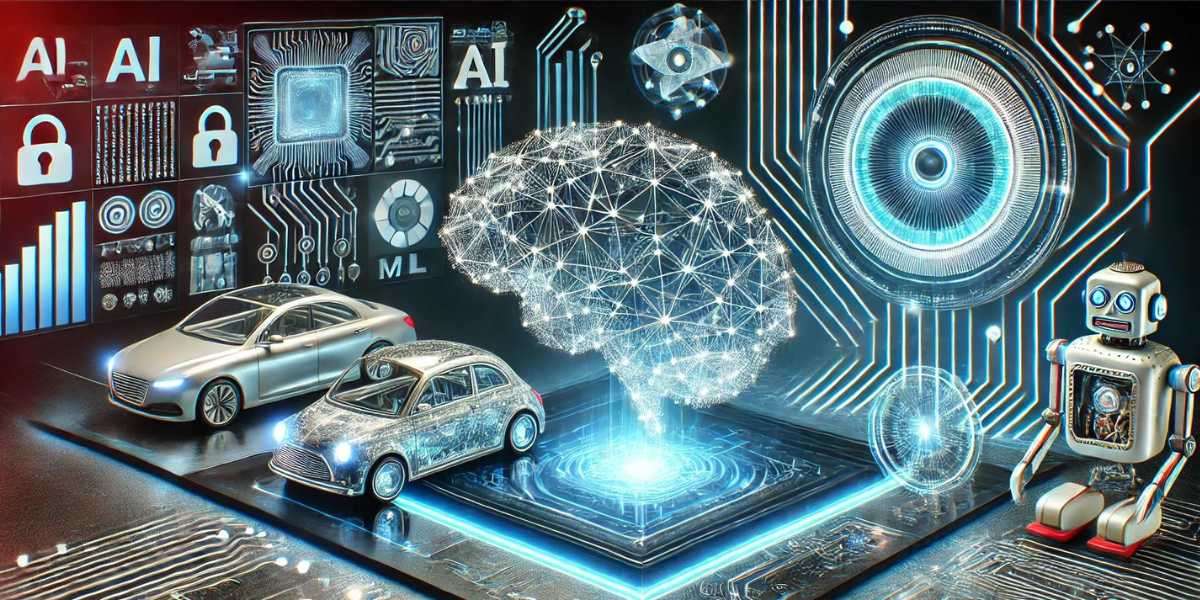Artificial Intelligence (AI) and Machine Learning (ML): Leading the Way in Technological Advancements
Artificial Intelligence (AI) and Machine Learning (ML) are not just buzzwords; they are the driving forces behind the most significant technological advancements of our time. From autonomous systems to generative AI models and AI-driven personalization, these technologies are shaping the future, redefining industries, and transforming how we interact with the world.
Understanding AI and ML: The Building Blocks of Modern Technology
Before diving into the latest advancements, it’s crucial to understand what AI and ML are and how they work.
Artificial Intelligence (AI) refers to the simulation of human intelligence in machines. These machines are designed to think, learn, and adapt, mimicking human cognitive functions such as problem-solving, decision-making, and language understanding.
Machine Learning (ML) is a subset of AI that focuses on the development of algorithms that allow computers to learn from and make decisions based on data. ML algorithms enable systems to improve their performance over time without being explicitly programmed for every task.
Together, AI and ML are the foundation of many cutting-edge technologies that are transforming industries across the globe.
The Rise of Generative AI Models
One of the most exciting developments in AI is the rise of generative models. These models, powered by advancements in neural networks and deep learning, can create new data similar to the data they were trained on. This includes generating text, images, music, and even entire virtual environments.
Generative AI models like OpenAI’s GPT series or DALL-E have garnered significant attention for their ability to produce human-like text and highly realistic images. These models are trained on vast datasets and can generate content that is coherent, contextually relevant, and often indistinguishable from human-created content.
The implications of generative AI are far and wide. In content creation, it allows for the automation of writing, image creation, and even video production. In research, it can assist in hypothesis generation and data analysis. The creative industries are also seeing a surge in AI-generated art, music, and design, opening new avenues for artistic expression.
Autonomous Systems: AI in Action
Autonomous systems are another area where AI and ML are making a significant impact. These systems are designed to perform tasks without human intervention, relying on AI and ML algorithms to make decisions in real-time.
Autonomous vehicles are perhaps the most well-known example of this technology. Companies like Tesla, Waymo, and Uber are at the forefront of developing self-driving cars that use AI to navigate complex environments, avoid obstacles, and make split-second decisions to ensure passenger safety.
Beyond vehicles, autonomous systems are being implemented in various industries, including manufacturing, where robots and automated machines are taking over repetitive and dangerous tasks. In agriculture, AI-powered drones and machines are optimizing planting, watering, and harvesting, leading to increased efficiency and reduced environmental impact.
The development of autonomous systems represents a significant leap towards a future where machines can perform complex tasks independently, reducing the need for human oversight and allowing people to focus on more creative and strategic activities.
AI-Driven Personalization: Tailoring Experiences to Individual Preferences
Personalization has become a key factor in user experience. AI and ML are at the heart of delivering personalized content, products, and services to users based on their preferences, behaviors, and interactions.
AI-driven personalization is most evident in the way companies like Amazon, Netflix, and Spotify operate. These platforms use AI algorithms to analyze user data and recommend products, shows, or music tailored to individual tastes. This not only enhances the user experience but also drives customer loyalty and increases sales.
In marketing, AI-driven personalization allows businesses to create targeted campaigns that resonate with specific audience segments. By analyzing customer data, AI can predict what products or services a customer is most likely to be interested in, enabling more effective and efficient marketing strategies.
AI also revolutionizing customer service through the use of chatbots and virtual assistants. These AI-powered tools can provide personalized responses to customer inquiries, improving satisfaction and streamlining operations.
The Future of AI and ML: Challenges and Opportunities
While the advancements in AI and ML are impressive, they also come with challenges. Concerns about data privacy, ethical considerations, and the potential for job displacement are significant issues that need to be addressed as these technologies continue to evolve.
However, the opportunities presented by AI and ML far outweigh the challenges. As these technologies advance, we can expect to see even more innovative applications that will transform industries, enhance human capabilities, and drive economic growth.
What are your thoughts? Let us know in the comments.








